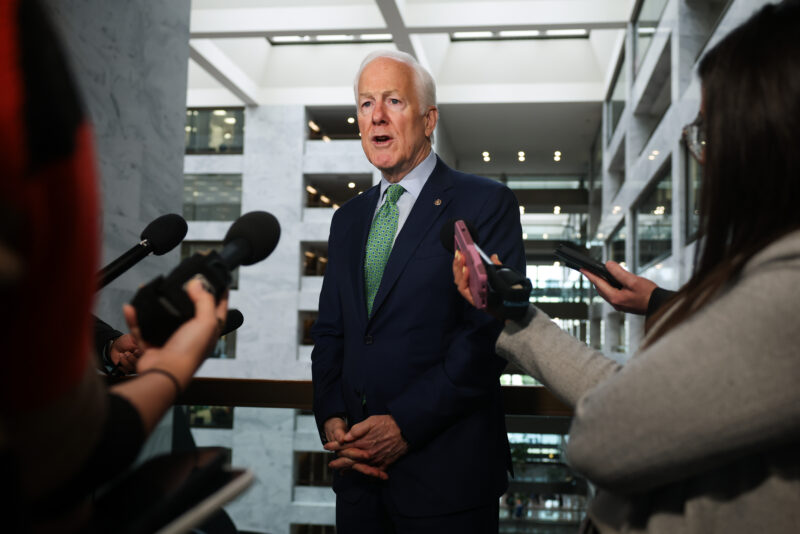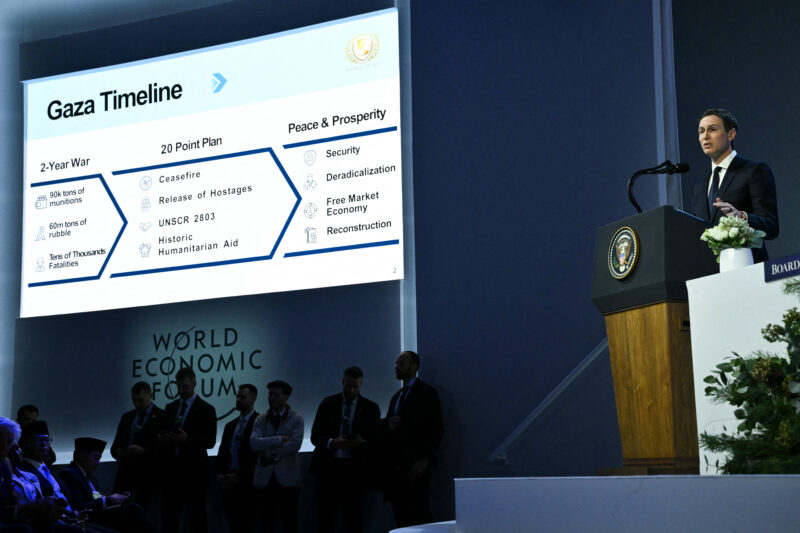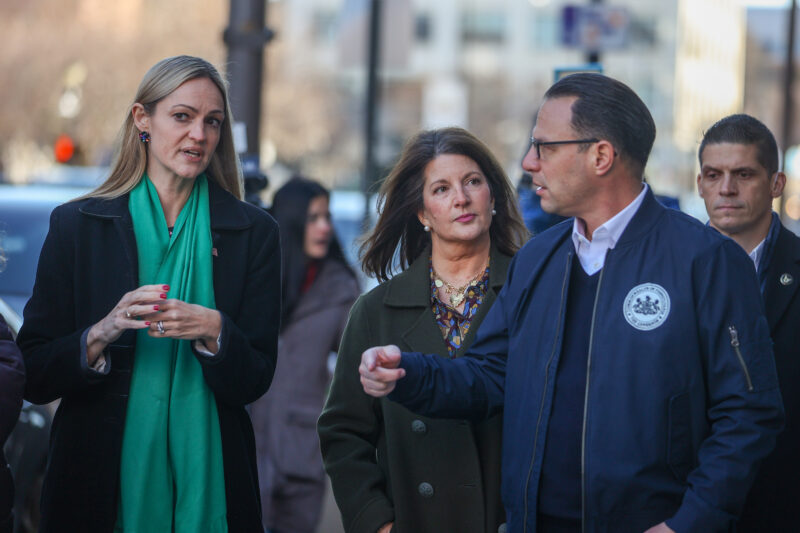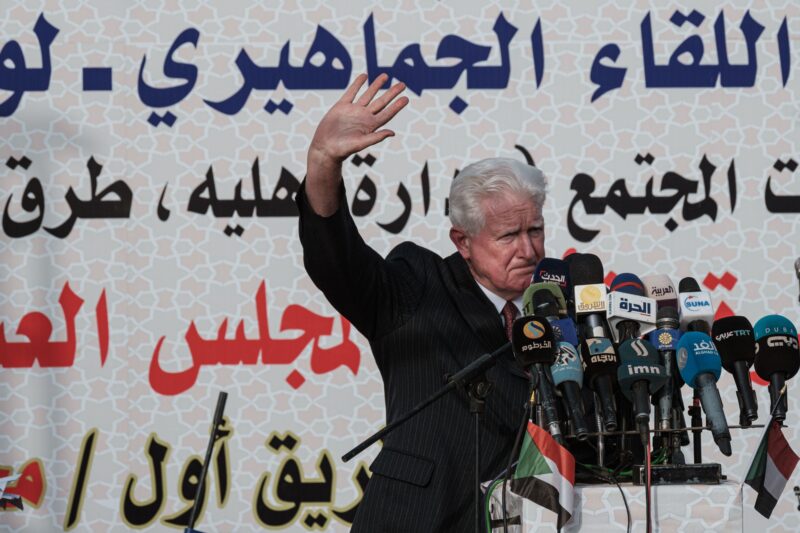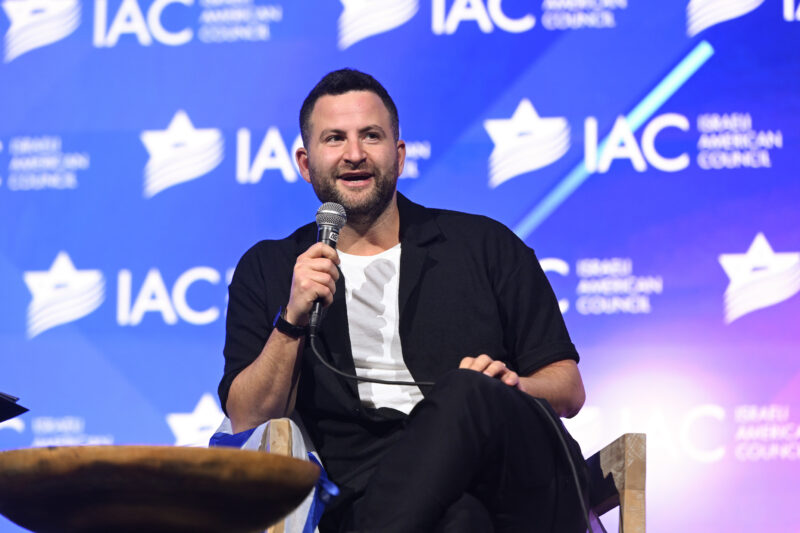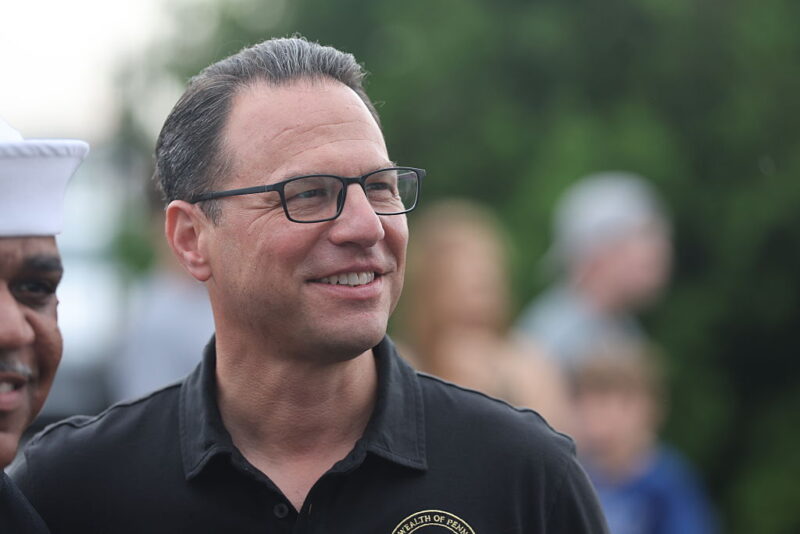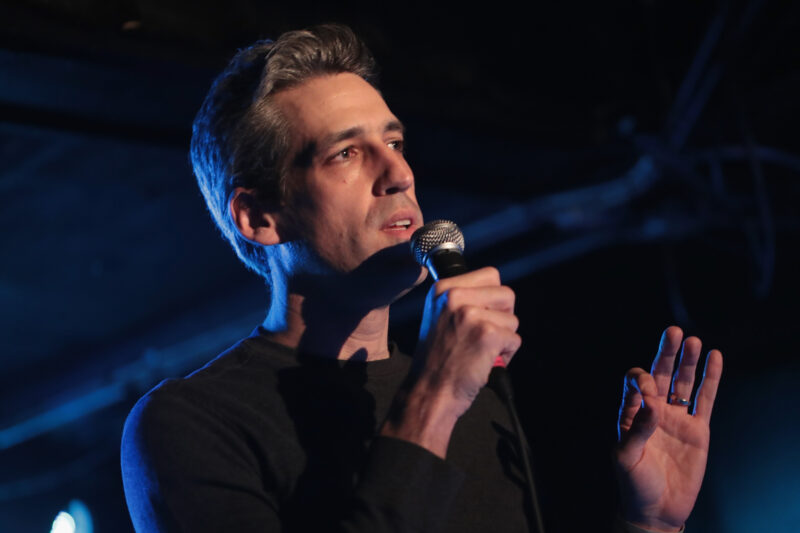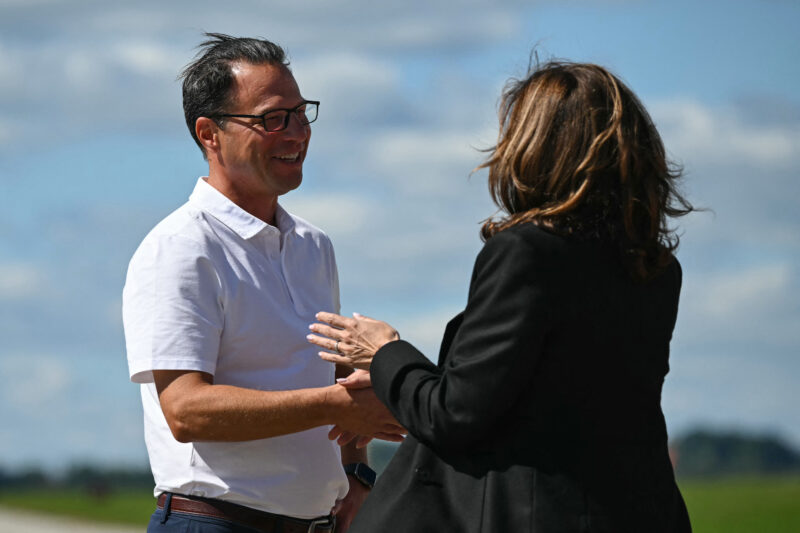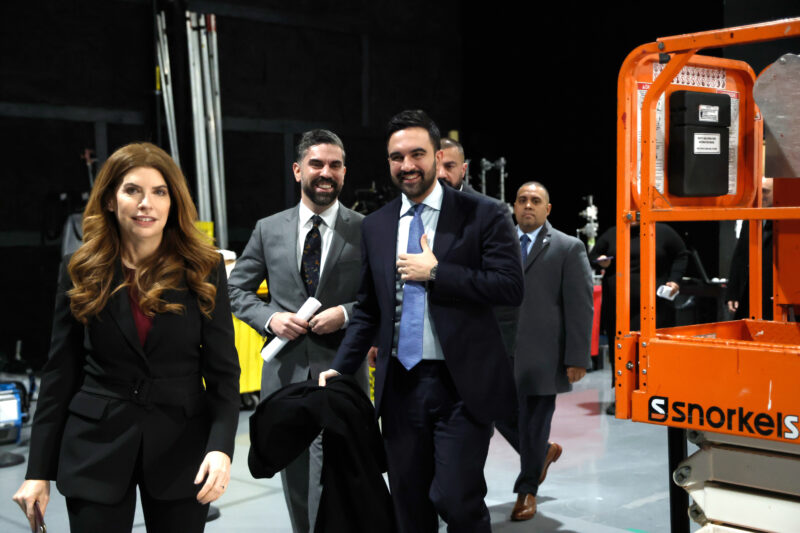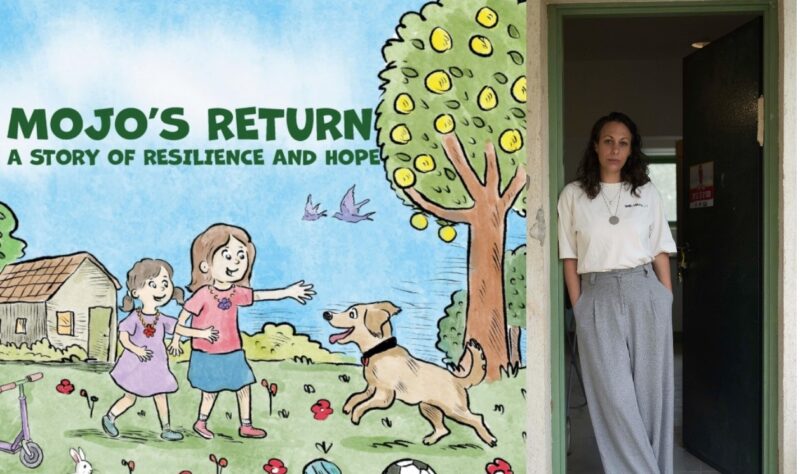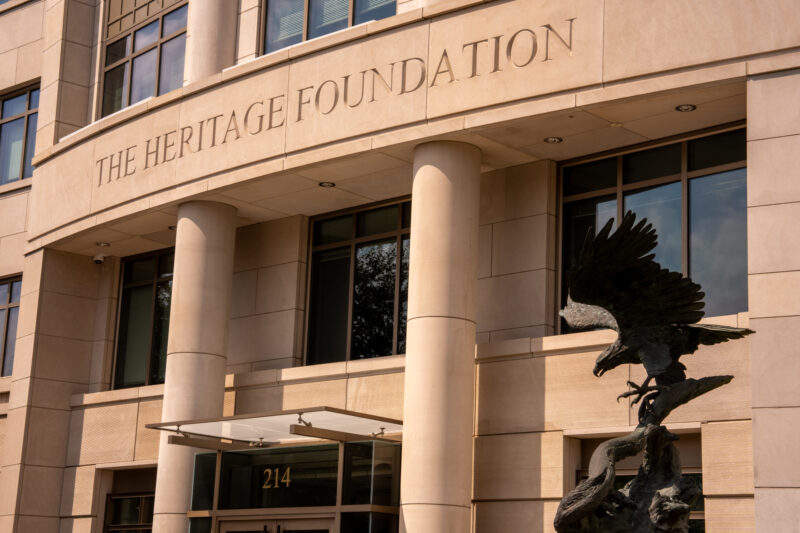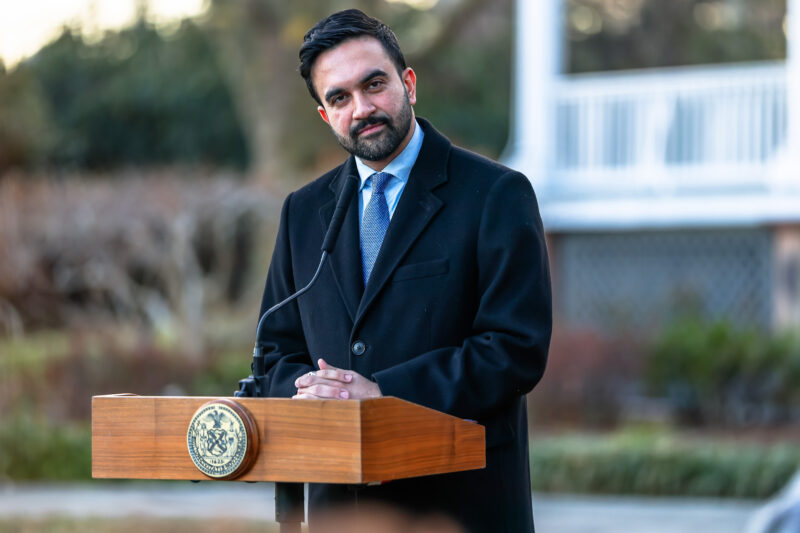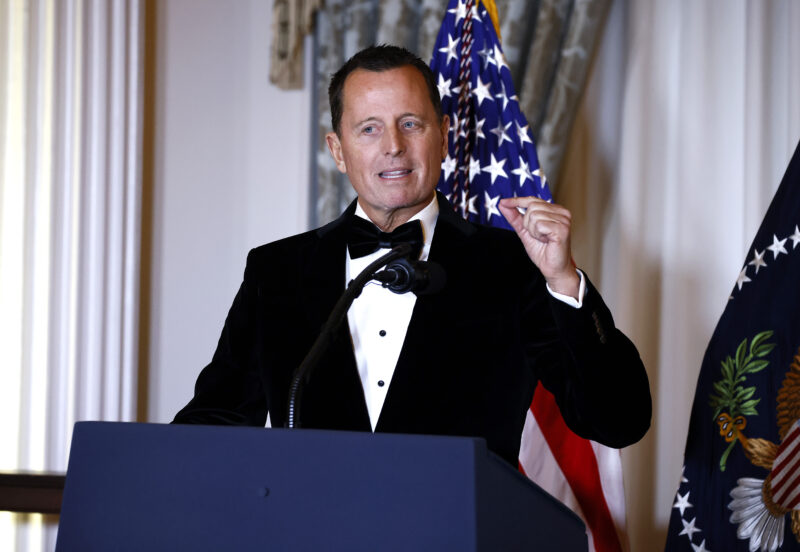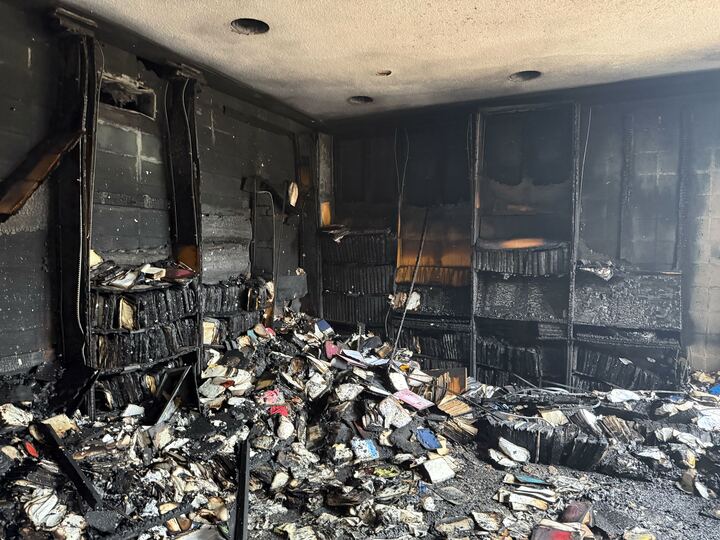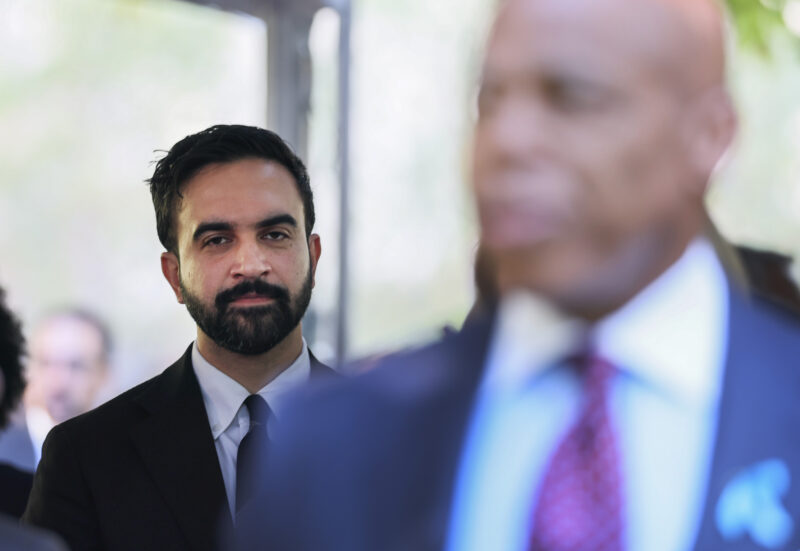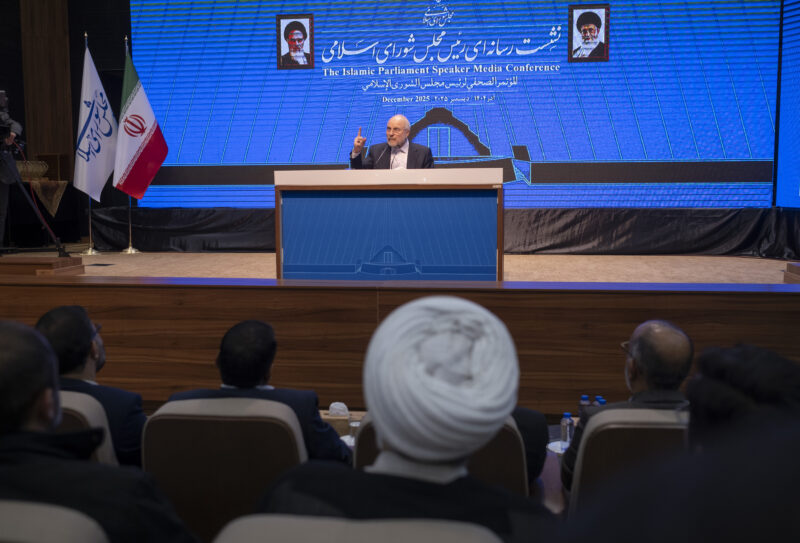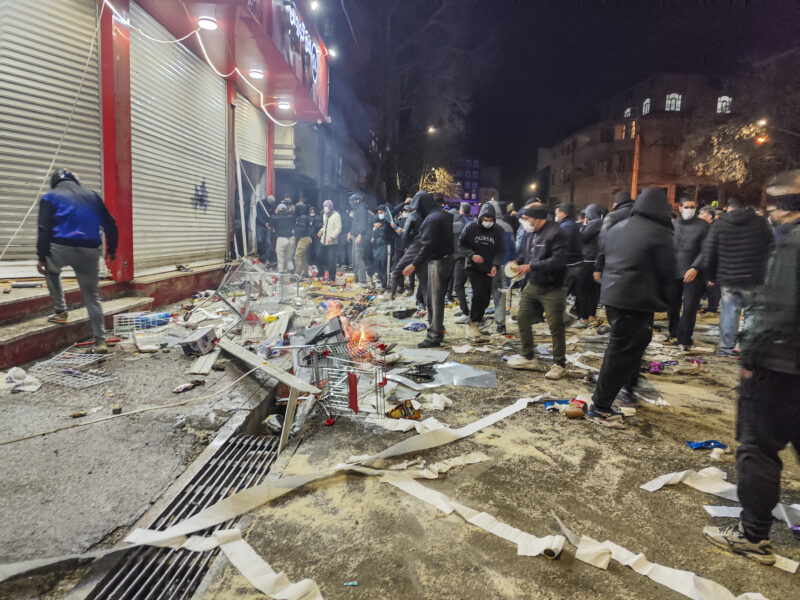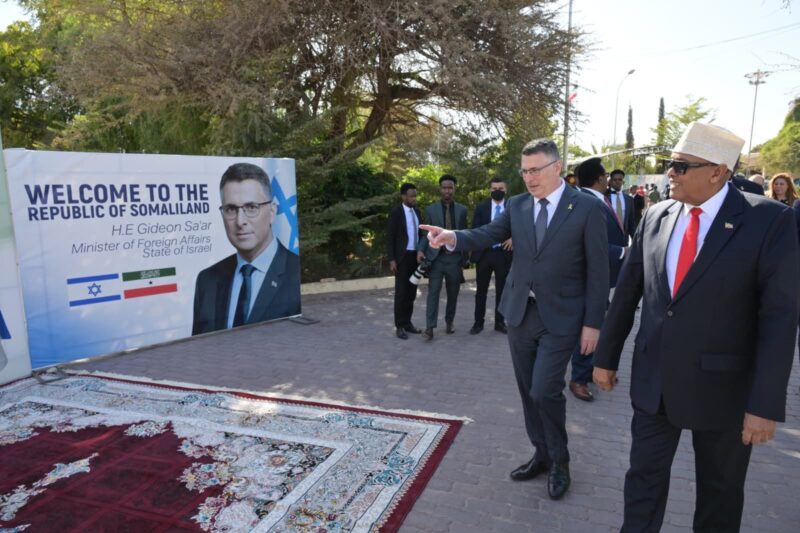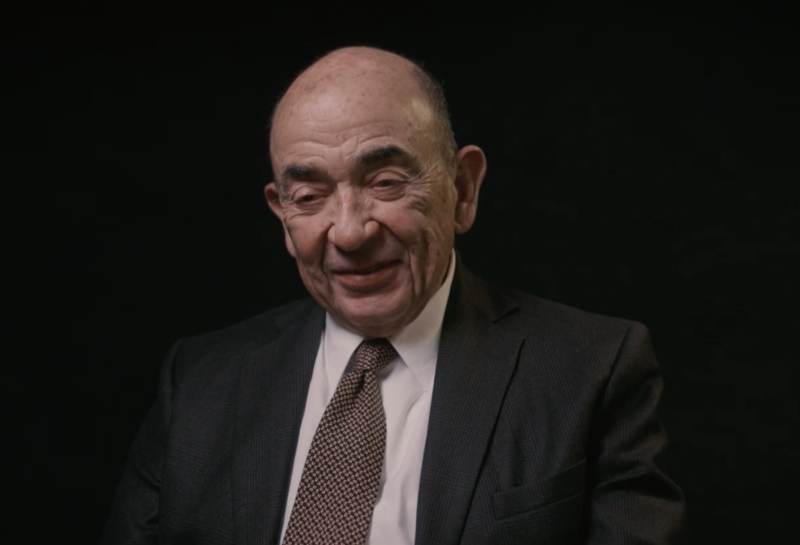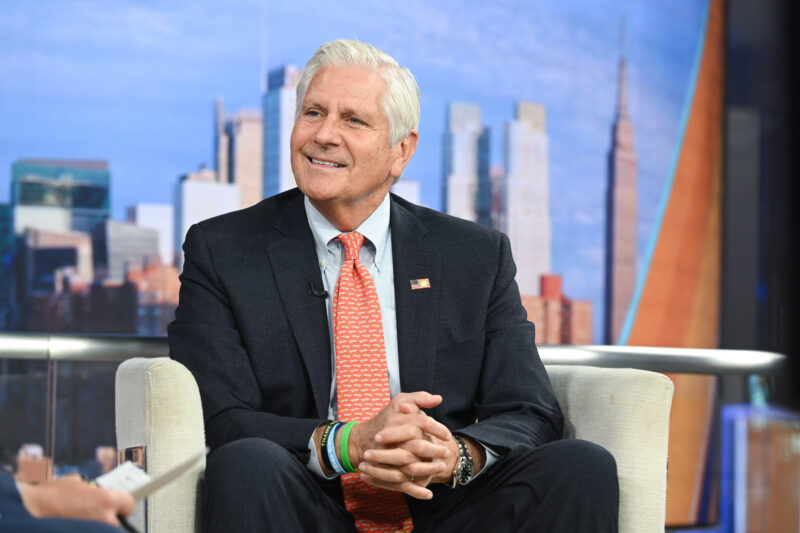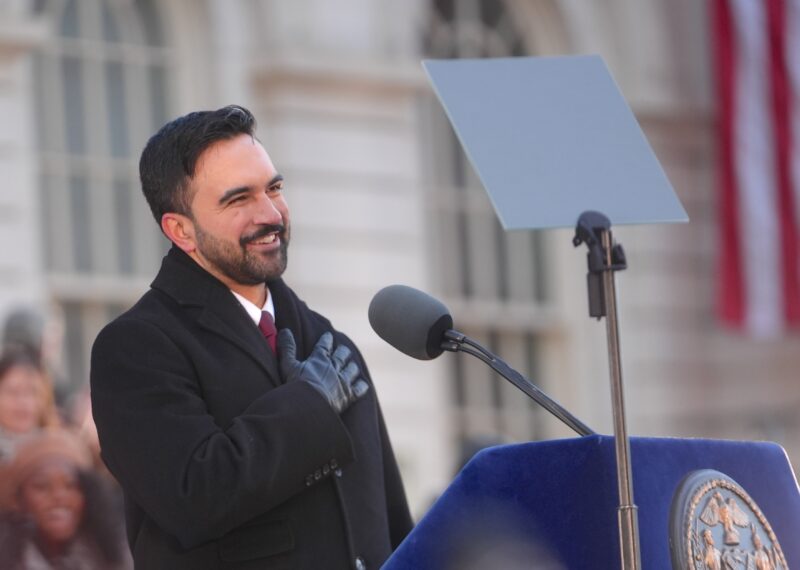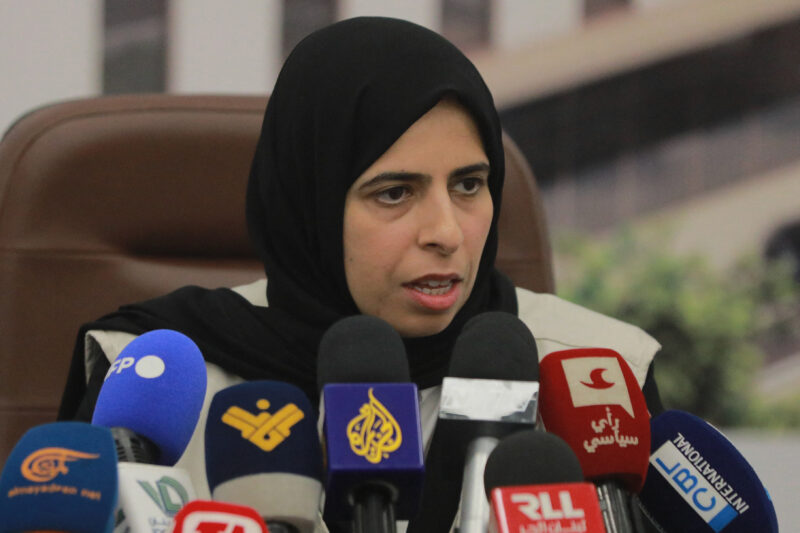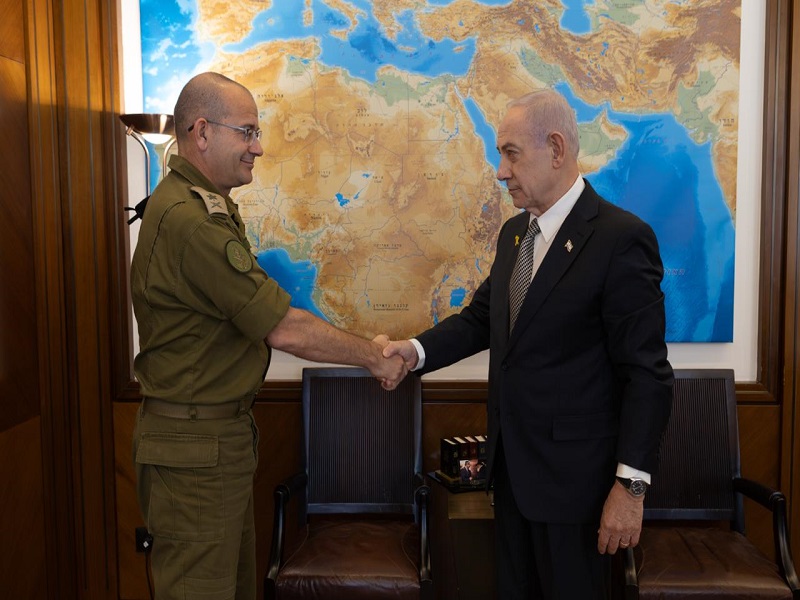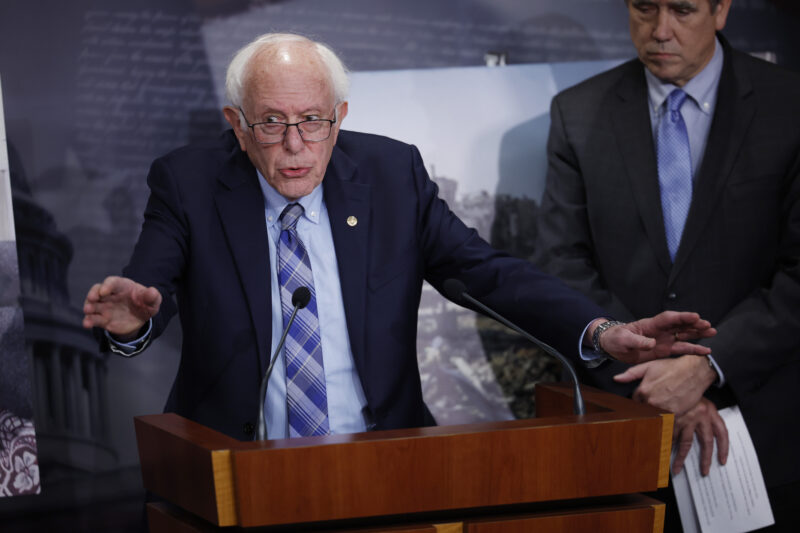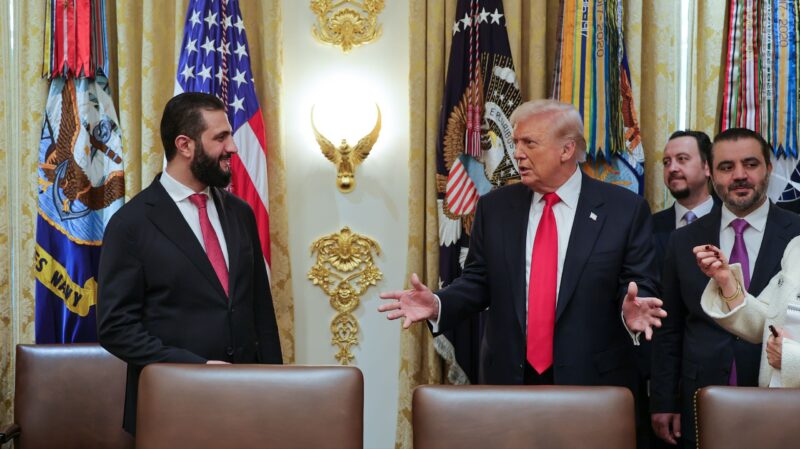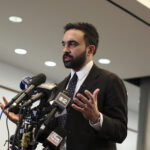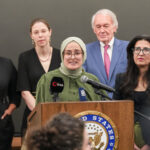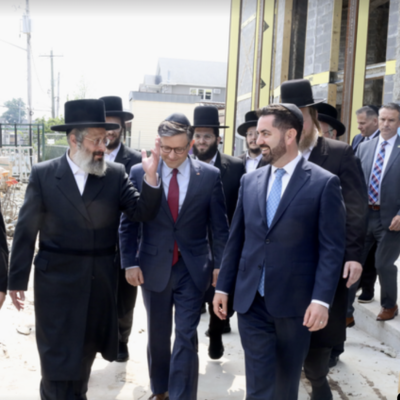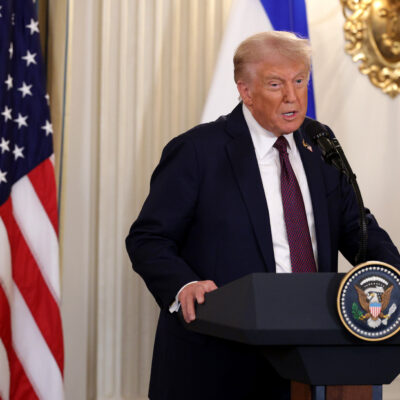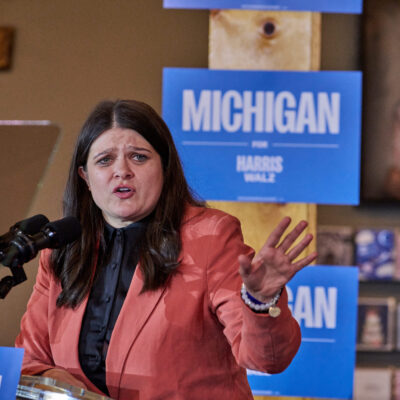Administration officials accuse Hamas of genocide, doubt willingness to release hostages voluntarily
The State Department’s Barbara Leaf and the Defense Department’s Dana Stroul testified before the House Foreign Affairs Committee on Wednesday

Alex Wong/Getty Images
Assistant Secretary of State for Near Eastern Affairs Barbara Leaf (L) and Deputy Assistant Defense Secretary for the Middle East Dana Stroul (R) testify during a hearing before the House Foreign Affairs Committee at the U.S. Capitol on November 8, 2023 in Washington, DC.
In testimony before Congress yesterday, senior administration officials questioned Hamas’ willingness to voluntarily release the some 240 hostages abducted by the terror group on Oct. 7 — whether through a ceasefire or other means — and said the group had committed genocide and other war crimes.
Barbara Leaf, the assistant secretary of state for Near Eastern affairs, and Dana Stroul, the deputy assistant secretary of defense for the Middle East, testified before the House Foreign Affairs Committee yesterday on the Israel-Hamas war and broader conditions in the Middle East region.
The administration officials argued against a ceasefire with Hamas, noting that such a move would allow Hamas to remain in power, maintain its warfighting and terrorism capacity and, according to Stroul, provide no assurances that Hamas would actually release its hostages.
Leaf added that “it’s a real question” whether Hamas “is serious in any degree about releasing those hostages,” and noted that Hamas has repeatedly violated past cease-fires, including on Oct. 7.
Stroul and Leaf agreed that Hamas is guilty of war crimes and genocide, and in violation of humanitarian law, with Stroul noting that Hamas itself has released evidence of such crimes. Leaf noted that Hamas is also preventing the Red Cross from visiting hostages.
“The rules of international humanitarian law are clear. They apply to the Israel Defense Forces. They also apply to Hamas,” Stroul said.
The officials largely defended the Israeli response to Hamas and Israel’s practices in seeking to avoid civilian harm, while reiterating the need for Israel to abide by humanitarian law.
Stroul rejected an allegation from Rep. Joaquin Castro (D-TX) that Israel was pursuing “collective punishment” in Gaza rather than targeting Hamas sites, describing the IDF’s operations as aimed at dismantling Hamas’ military infrastructure.
She specifically pushed back on his characterization of a recent incident in which Israel struck an ambulance in Gaza.
“With respect to the ambulance convoy, this is a good example of the misinformation and disinformation environment,” Stroul said. “The Israel Defense Forces announced that they saw Hamas terrorists using the ambulance to conceal militants and weapons. It is also incumbent on the Israel Defense Forces and the Israeli government to make that information known, so the world can understand how Hamas disguises itself and its tactics in civilian structures.”
Stroul said that, despite the U.S.’ support for humanitarian pauses in the fighting in Gaza, the U.S. has not conditioned its aid to Israel on executing such pauses.
In what seems to be a change of posture for the U.S. from before the war, Leaf said that there is “there’s a greater urgency than ever to take a negotiation forward after the conflict towards Palestinian statehood.”
“The only way to ensure that this crisis never happens again, is to begin setting the conditions for durable peace and security, and to frame our diplomatic efforts now with that in mind,” she continued.
Leaf said that the Palestinian Authority “is the appropriate place to look for governance” in the long run. She emphasized the importance of prioritizing that discussion now, while the conflict is ongoing. But she acknowledged that the PA has limited control even in the West Bank and is likely not prepared in the short-term to take on governing responsibilities in Gaza.
She said that the final outcome of the conflict, particularly how successful Israel is in degrading Hamas, “will go directly to who, and how, manages” Gaza.
Leaf emphasized the need for the Palestinian people “to be at the center of post-conflict governance” with the end goal of a common political entity governing both Gaza and the West Bank.
Stroul discussed the U.S. strategy for deterring Iran amid increasing attacks by its proxies on U.S. forces. During the hearing, the U.S. struck an Islamic Revolutionary Guard Corps weapons depot in Syria yesterday, the second strike on Iranian assets since Oct. 7.
She emphasized that military strikes are not the U.S.’s only tool of deterrence, highlighting the increase in U.S. forces in the region, public messaging about U.S. capabilities and extensive warnings through diplomatic back channels to Iran. She said the U.S. has made clear it’s willing to attack Iran and its proxies when appropriate.
Stroul declined to discuss specific targeting decisions in public, but indicated that one reason the U.S. has not gone directly after the origin sites of some of the Iranian proxy attacks is because such groups are hiding these bases in civilian areas.
She insisted that the administration does not need or want preemptive authorization from Congress to strike Iran or its proxies, describing current constitutional self-defense authorities vested in the president as sufficient for the current mission. Stroul suggested that authorizing preemptive military force against these groups would be an escalatory step, and potentially seen as a declaration of war against Iran.
But she acknowledged that current authorizations do not allow the U.S. to strike Hamas or Hezbollah in response to strikes by those groups on Israel. The administration would need to seek specific authorization from Congress for such a mission, she said.
While Leaf said that relations are “strained” between Israel and its Abraham Accords partners, the signatories to those agreements remain “committed” to continuing the agreements. She added that ensuring those relationships endure is a key priority for the U.S. following the conflict.
“These partners are very focused on, and their publics are very focused on — and enraged frankly by — the mounting total casualties among civilians, Palestinian civilians in Gaza,” Leaf said. “But that said, I’ve heard nothing that would sway me from the belief that there is a day on the other side of this conflict, where people will work to resume work to repair those relations, because there’s a common good to that.”
She provided a similar report on normalization talks with Saudi Arabia, explaining that the U.S. expects to be able to resume the now-paused talks after the war ends.
But, she acknowledged, “this crisis has roiled up just a huge amount of public anger towards Israel, towards us. This is something we’re going to have to work through.”
Leaf vigorously defended Qatar’s involvement with Hamas, describing Qatari officials as working “relentlessly” to try to negotiate the release of U.S. hostages and placing pressure on Hamas officials in Qatar — at the request of both Israel and the U.S. Qatar and Egypt are both “exercising every bit of their influence and their energy” to help free the hostages, she said.
She hinted, however, at plans to seek a change to the status quo of Qatar’s support for and harboring of Hamas officials following the current conflict.
“It’s fair to say that we’ve been clear with all of our partners and countries around the world that it will not be back to business as usual,” Leaf said, adding, “a counter-Hamas effort globally will be a top priority going forward.”
Leaf noted U.S. successes in facilitating humanitarian aid to Gaza, including convincing Israel to restore and repair water access into Gaza. But she also said that facilitating such aid is complex, including juggling concerns from Egypt.
The departure of foreign nationals from Gaza has been complicated by Hamas’ demands to send out injured Gazans, a process that requires difficult coordination between Israel and Egypt as well as careful review of the individuals Hamas seeks to evacuate, she added.
Leaf lamented the increase in Israeli settler attacks on Palestinians in the West Bank, which she said U.S. officials have raised with Israeli counterparts for months and have exploded since Oct. 7.
“There has been a belated, but welcome, sort of awakening to the alarming trend lines among senior leaders of the [Israeli governing] coalition,” she said. “They have committed to us to pursue, to deter, to prevent these activities and to bring to accountability those who engage in them.”














